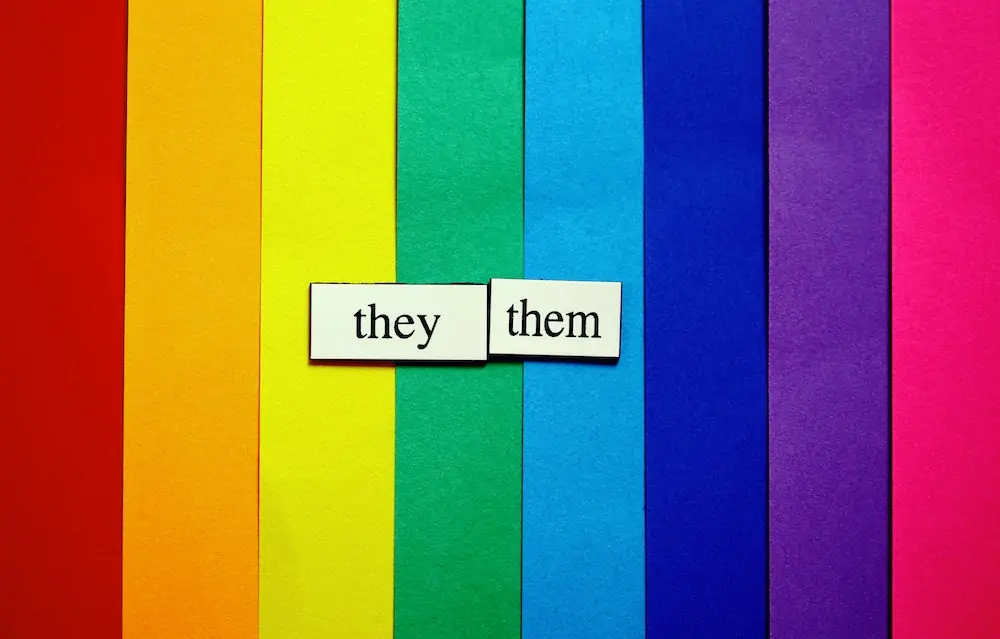Gender Non-Conforming (GNC) people don’t look, act, or identify with the traditional gender categories of male and female.
Download HER app
Gender non-conforming people vary widely in how they identify, dress, and look.
Many gender non-conforming people identify as non-binary or transgender, including agender, bigender, genderqueer, and genderfluid identities.
However, some GNC people still identify as cisgender male or female; they just feel that they don’t fit the social norms of their gender.
There are many different ways to not conform to gender norms.
For example, many drag queens and drag kings describe themselves as GNC because, although they may identify as cisgender out of drag, dressing up as the opposite gender doesn’t fit into traditional gender norms.
What Do They Look Like?
Just like there is no one way to be non-binary, there is no one way to be gender non-conforming.
Not conforming to gender norms can look different for different people and appear more masculine, feminine, or androgynous, depending on the individual.
It’s important to ask people how they would like to be referred to and how they identify, regardless of how they look, dress or act.
Many lesbians who are assigned female at birth (AFAB) but present as butch or androgynous also describe themselves as gender non-conforming because they don’t dress or act in a traditionally feminine way.
Similarly, some gay and bisexual men who feel more feminine might identify as gender non-conforming even though they are cisgender and assigned male at birth (AMAB).
For others, being gender non-conforming is a part of being non-binary.
Non-binary people identify outside of the traditional male/female binary. Some dress and act more stereotypically feminine or masculine, while others don’t conform to any gender stereotypes.
GNC non-binary people might just use those two terms or identify as agender, bigender, genderfluid, genderqueer, two-spirit, or another identity.
Being GNC looks and feels different for different people.
For some, it’s a significant part of their identity and how they like to be referred to; for others, it’s just a way to describe the fact that they don’t adhere to gender stereotypes.
No matter how you identify, if you feel like you don’t quite fit into traditional gender categories, you could be GNC.
It doesn’t have to be a big deal or involve coming out – it can just be a way to describe the way you feel, act, or dress. Many queer people feel this is some facet of their identity, even if they don’t say it aloud.
The reality of being queer is not fitting into traditional categories, which often comes with eschewing gender roles.
Gender is fluid, whether that’s your identity, presentation, or behavior, so it’s perfectly valid to feel like you’re non-conforming some days but not others, or for this to change over time.
We are lucky to live in modern times when we have so much language available to us to describe ourselves and identify with!
Use whatever feels right to you, and respect whatever feels right to other people.
Download HER app







